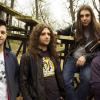Q&A With Former Centro-matic Frontman Will Johnson

Photo Credit: Matt Pence
It’s not unfathomable that a currently inactive band like Centro-matic can have its legacy positively—and constantly—reconfigured in our digital age. Thanks to recently tweeted endorsements from artists like Jason Isbell, the indie darlings from Denton, TX are experiencing something of a renaissance, despite disbanding in 2014. Frontman Will Johnson is keeping his former band’s brand of rock and roll abstraction alive through contemplative solo releases and incessant touring. Johnson takes a break from an Undertow Music-endorsed living room jaunt around the U.S. to perform at Normaltown Hall on Sunday, Oct. 9.
Flagpole: The Georgia Theatre just announced that you'll be opening for Jason Isbell in the winter here in Athens. You don’t seem afraid of coming to town these days.
Will Johnson: Oh, no. I try to get there at least once a year, and this year, I'll be coming around a couple of times. So, it's always a fortunate thing. I'm always inspired and excited when the next Athens visit is solidified. I'm always a little bit more at ease when I know I get to come back before long.
FP: Are you on the road now?
WJ: Yeah. That's right. I'm on the way home to Austin from Memphis. For the last week, I've been in Memphis working on a record with my friend [Justin Peter Kinkel-Schuster] from the band Water Liars. We made a record together at Sam Phillips Recording, which was a really awesome experience. It was an amazing experience to get to track music in those walls with all that history and all those ghosts around there. It's quite resonant. It's a big deal to get to go in there and do some recording.
FP: You're not taking many breaks at all. What inspired this blast of creativity? Or is it simply a matter of convenience that things are working out with your schedule?
WJ: I think it's more the latter. It hasn't really been a calculated thing to just suddenly start spewing a ton of material into the world. I think it's just been timing and I'm turning recordings around a little faster now than I have at other times. Also, there are a few collaborations where I can kind of hang back and just be the dude. For instance, I'm working on some recordings with David Bazan right now, playing drums on a lot of stuff, which is wonderful. It's great to get back to playing drums. There are a couple of 4-track recordings, like 7-inches, that are coming out as well. I can turn those around pretty fast. I can record them at home and mix them. They don't have to go off to any formal mixing or mastering processes that take a while.
FP: You've done a few of the Undertow tours. Does the immediate connection with the audience help with the creative process?
WJ: I think it does. Naturally, it intensifies the experience, for sure. But I also like the way that it peels everything back for all of us involved. It puts us on neutral terrain, and there's a certain vulnerability and a certain trust that comes with doing shows like that. I do think that inspires the music from time to time. I'm writing alone, and I'm able to get some writing done on the road now. I've got a little extra time now, and I can get into my head on those tours… There are some more story songs here, and there are some more character songs nowadays, just as a result of touring.
FP: I'm curious about what the political climate is doing to your aesthetic sensibilities these days.
WJ: I think the energy of an election year has historically inspired me to try to write a good bit, but I'm not a terribly political songwriter. There are a handful of songs over the years that definitely touch on a few of these things, or some of those currents. I will say that it's more of the energy around it, and the interaction, and sometimes just the natural presence of human folly. It's at the forefront in any election, that feeling and that charge. General human folly is hard to ignore, and it's hard not to get some of that into the songwriting from time to time, because the spotlights are so bright during this one.
There were a lot of sports metaphors and things like that early on in my writing. I've distanced myself from some of that, because I think I oversaturated that approach, but it transfers over to matters of pop culture and political culture as well—just how we are accident-prone, and how truly funny we can be as humans through our communication with one another, especially when… the stakes are so high. I know it's not all a laughing matter. But at the same time, it's hard to ignore that aspect of it… A lot of the time, you have to laugh just to keep from crying, and with the folks that we're dealing with right now politically, you almost have to. I mean, I do.
FP: We have all these revolutionary means to communicate with one another, but it's a little harder to be a human being now more than ever. Is that on your mind?
WJ: Without a doubt. I'm sure, like so many songwriters… [songwriting] serves as an escape from a lot of that stuff. I don't always want to sing songs where I'm stomping on the ground and screaming into the sky about my political concerns… Sometimes, it's got to be there for the listener, too. It's a hard time to gather any measure of escape from just the simple act or staring at a screen. Everywhere we go, we're looking at laptops and phones and tablets and even screens in our car. In the meantime, we go into a restaurant or bar, and there are TVs blaring out whatever.
It just seems like screens are ever-presently feeding us information, whether we want it or not. The simple act of being away from a screen for a little while—either through writing a song or just sitting there to listen to a record—it's served as an escape and as a release to me as a fan of music and as a listener, but also as a writer.
FP: Cutting the cord—literally and metaphorically—can be a really powerful move.
WJ: Yeah. It goes that way with the painting thing, too. I mean, just to step out into the garage and push paints around, whether or not I'm going to show them or sell them, it doesn't matter. There's a therapy that comes with it, and it feels like a very primitive act. But, man, there's such a wave of solace that comes with that. I'm really grateful for what I do. It's a sanctuary that I continue to come back to.











comments